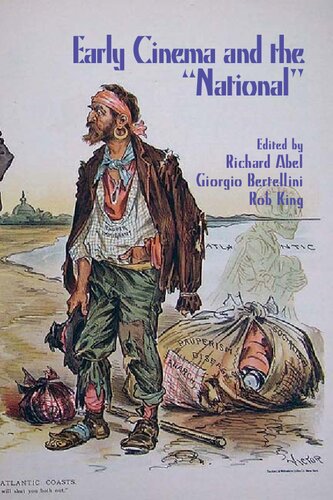

Most ebook files are in PDF format, so you can easily read them using various software such as Foxit Reader or directly on the Google Chrome browser.
Some ebook files are released by publishers in other formats such as .awz, .mobi, .epub, .fb2, etc. You may need to install specific software to read these formats on mobile/PC, such as Calibre.
Please read the tutorial at this link: https://ebookbell.com/faq
We offer FREE conversion to the popular formats you request; however, this may take some time. Therefore, right after payment, please email us, and we will try to provide the service as quickly as possible.
For some exceptional file formats or broken links (if any), please refrain from opening any disputes. Instead, email us first, and we will try to assist within a maximum of 6 hours.
EbookBell Team

4.8
94 reviewsWhen, where, and how did motion pictures become a national phenomenon or part and parcel of a national culture? What conceptions of nation were bound up with early cinema? Is early cinema best understood in global or transnational terms? While many studies have been written on national cinemas, "Early Cinema and the "National" is the first anthology to focus on the concept of national film culture from a wide methodological spectrum of interests, including not only visual and narrative forms but also international geopolitics, exhibition and marketing practices (both local and global), and pressing linkages to national imageries. The essays in this richly illustrated, landmark anthology are all devoted to rethinking the nation as a framing category for writing cinema history.
As many of the thirty-four contributors show, concepts of national identity played a role in establishing many of the parameters of cinema's early development, from technological change to discourses of stardom, from emerging genres to inter-titling practices. Yet, as others attest, national meanings could often become knotty in other contexts, when concepts of nationhood were contested in relation to colonial/imperial histories and regional configurations. The relationship between cinema and the concept of nation has been challenged by multi-national capitalism, and Early Cinema and the "National" takes stock of an earlier moment in cinema history, tracing the beginnings of the process whereby nations learned to imagine themselves through moving images.